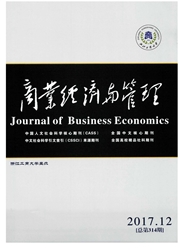

 中文摘要:
中文摘要:
从交易管制放松的理论视角分析农产品流通体制市场化转轨的内在机理与制度逻辑,文章构建一个以破解“诺斯悖论”为出发点的理论框架。在此基础上推导的动态博弈模型证明,若农产品交易管制收益的增长率不能超过成本的增长率,则国家实施农产品交易管制的努力程度将下降。农产品产量的增多增加了全面实施交易管制所需要的信息与监督费用,从而导致国家最终无法维持现存的农产品交易管制制度,不得不放松对农产品交易的管制。因此,农产品交易管制放松是国家解决“诺斯悖论”的理性选择。1978—2012年间中国农产品流通体制市场化改革的面板数据与上述理论模型基本上是一致的。
 英文摘要:
英文摘要:
From the theoretical angle of transaction deregulation, this paper analyzes the internal mechanism and institutional logic of agricultural products circulation system in the market-orlented transition and builds a theoretical paradigm based on the solution of "North Paradox". What's more, the dynamic game theory model proves that if revenue growth rate of the transaction regulation cannot exceed its cost growth rate, the State's effort in regulation will decline. The more the agricultural output, the higher the information and supervision costs in the comprehensive structure of transaction regulation, which constitutes the State's implementation predicament in maintaining the current agricultural product transaction regulation systems. The heavy costs of agricultural product transaction regulation on the State lead to the failure of maintaining the institution of transaction regulation, and the deregulation of the transaction of the agricultural products. In other words, the agricultural product transaction regulation of the State is its rational choice to solve the "North Paradox". Then, the history panel data of China's agricultural products circulation system transition from 1978 through 2012 is used for empirical test with its theoretical model.
 同期刊论文项目
同期刊论文项目
 同项目期刊论文
同项目期刊论文
 期刊信息
期刊信息
